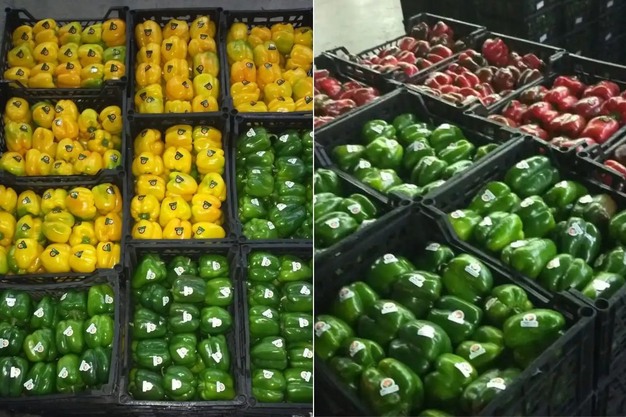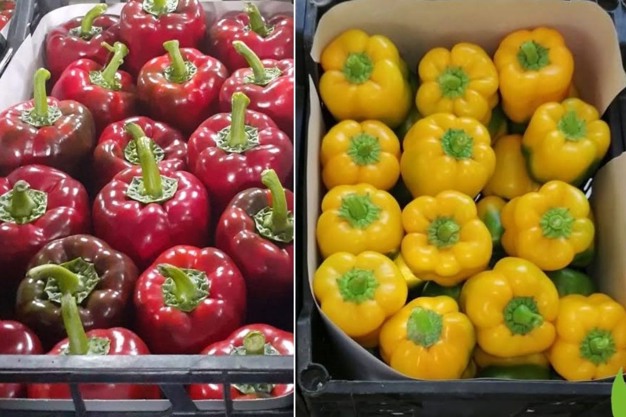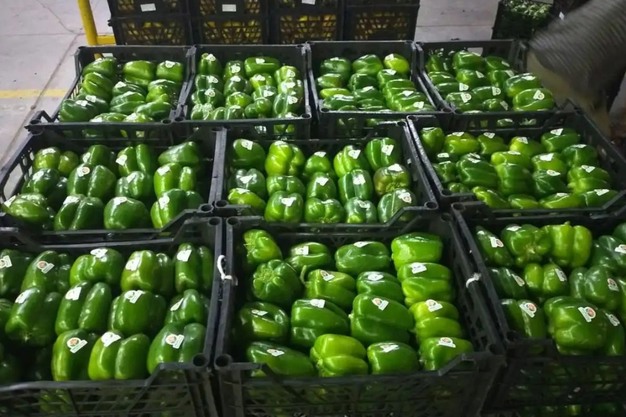The Egyptian capsicum season is drawing to a close, after a period of peak harvests from November to February. Limited quantities can still be exported until July, according to Ayman El Sayed, Fresh Zone's Sales and Export Manager. The exporter reports on the course of the season.
 © Youness Bensaid | FreshPlaza.com
© Youness Bensaid | FreshPlaza.com
The season has begun with a slight increase in acreage, El Sayed says. "Egyptian bell pepper acreage is divided between two regions, the Nile Delta and Behira. Expansion in the Delta region has remained stable over the last three years at around 5-10% due to strong demand from Europe and the Middle East. I estimate that volume targets for the 2024/2025 season are around 450,000 tonnes for local and export markets. This season has also followed the same seasonal pattern as the previous one, despite fears of a delay due to climatic fluctuations. It accordingly began in November and is expected to end in June, with peak volumes achieved between November and February."
According to the exporter, the season was marked by strong demand, particularly from proximity markets. He explains, "The Gulf countries receive our shipments in short transit time and remain an important market. In addition, new logistics channels to Europe, such as RO-RO services, have increased European demand, particularly during the winter period, when European production is low. Italy and the Netherlands lead the European demand, followed by Germany, the UK, and France. Exports to the Russian market have also increased this season."
 © Youness Bensaid | FreshPlaza.com
© Youness Bensaid | FreshPlaza.com
On the other hand, demand for Egyptian peppers from certain markets has dropped, according to El Sayed. "This is the case with Eastern Europe, which is a price-sensitive market that have turned to Morocco and Turkey. The Asian market is also very slow to develop."
Despite its export potential, Egyptian origin faces direct competition from two giants of pepper exports, Turkey and Morocco. El Sayed comments, "We're targeting the European market, where Morocco and Turkey have clear advantages. Morocco has the advantage of geographical proximity, with faster shipping and lower freight costs, and Turkey has stronger logistical links with Eastern European countries. Both origins also have their limitations: Morocco's production is lower than Egypt's, and Turkey has higher costs, inflation, and a volatile currency."
 © Youness Bensaid | FreshPlaza.com
© Youness Bensaid | FreshPlaza.com
The exporter continues: "Egyptian origin has the advantage of high production volumes and lower production costs, including labor costs. The devaluation of the Egyptian pound makes exports competitive but increases input costs. What we need is faster shipping, and the trend is reversing with regard to logistics. Egyptian exporters are recently taking advantage of fast shipping via Koper and RO-RO services from Damietta to Trieste, which guarantees delivery to European destinations within a week."
El Sayed concludes: "Thanks to the improvement of logistics, Egypt is experiencing growth in production and exports. It's only a matter of time before Egyptian peppers gain the acceptance of European markets."
For more information:
Ayman El Sayed
Fresh Zone
Tel: +201120038949 / +201026928587
Email: sales.ayman@egyfreshzone.com
www.egyfreshzone.com
